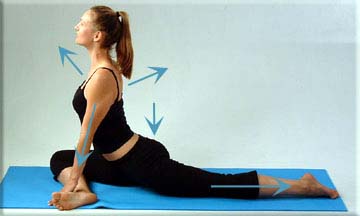Physical Therapy Info Health Tips
Our Integrated Physical Therapy blog, your go-to source for physical therapy articles and holistic health information. We provide expert insights, practical physical therapy tips, and the latest developments in the field. Whether you're recovering from an injury, managing chronic pain, or looking to improve your overall well-being, our physical therapy blog covers a variety of helpful topics.
Our goal is to empower you with the information you need to take an active role in your health and recovery. Ready to schedule an appointment and take control of your health? Contact Integrated Physical Therapy at 305-967-8976.
A Real Pain In The Butt
Forgive me, but do you want to know what can be a real pain in the butt? Piriformis syndrome, that's what. Piriformis syndrome is tricky, because if not treated properly, it can become a recurring bout of low back pain, hip pain, or numbness and tingling in the legs or feet, depending on whether the sciatic nerve is impinged or not. What I will discuss in this article are the causes of piriformis syndrome, a few home remedies that can relieve your immediate pain and discomfort, and how a good sports chiropractor would treat your low back, hip and buttock pain caused by piriformis syndrome.
What is Piriformis Syndrome?
Piriformis syndrome is characterized by lower back pain, pelvic pain, pain in the buttock or hip, and/or sciatica. The main player is a muscle called the piriformis (OK, OK, but you didn't know it was a muscle, did you?), which is seated in the gluteal or buttock region, and attaches from the tailbone (sacrum) to the thigh bone (femur). Like any muscle, it can get short and tight, but its distinction is that it sits on top of the sciatic nerve. Being the longest and thickest nerve in the body, the sciatic nerve is easily pinched by a short, tight piriformis muscle.
Now any nerve pain is intense, but what you get with sciatica is a burning, electrical pain down your leg. It's usually enough to cause a limp and just about everything irritates it-walking, sitting, lying down, everything. Forget pain killers or anti-inflammatories because they don't do diddly-squat for this condition. Only a handful of therapies do the trick-we'll be getting to them shortly-but not all cases of piriformis syndrome cause sciatica. Some cause buttock and hip pain only, while others include low back pain.
But another distinguishing characteristic of this syndrome is that it is almost always worse with sitting. This is because when we sit we do so right on top of the piriformis muscle. This little bit of anatomical trivia will come in handy later, as one of the home treatments for piriformis syndrome addresses this fact.
What Causes Piriformis Syndrome?
Like I said earlier, piriformis syndrome is caused by a short, tight piriformis muscle. This increase in girth and tension can compromise the sciatic nerve by squeezing or pinching it, leading to inflammation of the nerve and a subsequent case of pain, numbness and tingling down the leg on side of the affected muscle. But an important question to ask is why the piriformis muscle gets short and tight to begin with.
Short, tight muscles can come about from few different situations - weak synergistic or antagonistic muscles, chronic subluxation, and foot dysfunction. Every one of these scenarios is reversible; therefore piriformis syndrome is a correctable disorder.
Piriformis Syndrome Caused by Inflexibility
I caution when I write this, because I do not believe in inflexibility, rather Myofascial adhesion or antagonist/agonist over or under contraction.
A simple physiological principle is that we need to stretch to maintain functional muscle length. Short, tight muscles can cause a number of problems including joint dysfunction, circulation problems, poor posture, and as in the case of piriformis syndrome, nerve entrapment.
So, one solution to piriformis syndrome is to stretch regularly. Two stretches in particular are superb for relieving piriformis syndrome-the supine piriformis stretch, and a yoga pose called pigeon. To do the supine stretch, you need to lie on the floor on your back with knees bent. Crossing one leg over the other, push the lever side (which is the side not being stretched) actively toward your chest. By default, the bent leg will also move closer toward your chest, stretching the piriformis muscle. This stretch is excellent, especially for people that have poor flexibility to begin with. For those a bit more flexible, the pigeon stretch will be much more effective.


Integrated Physical Therapy is open Monday through Saturday, from 8am until 7pm. For the North Miami office, located at 2106 NE 123rd street, please call (305) 967-8976 to make an appointment. You can also visit our web site at www.IPTmiami.com to schedule your appointment or view the many articles and videos available to you.
Article by Dr. Nick Compos of Beverly Hills, Ca.



Comments